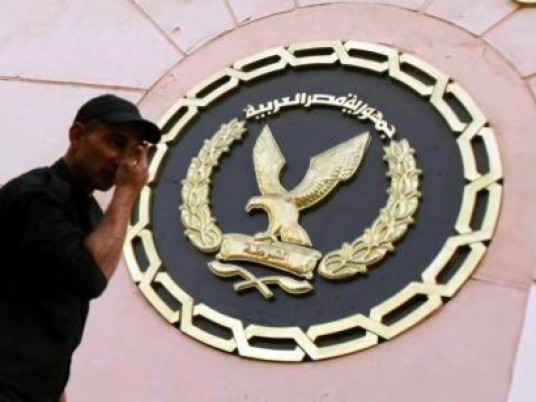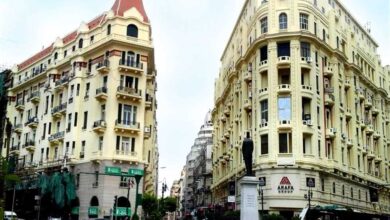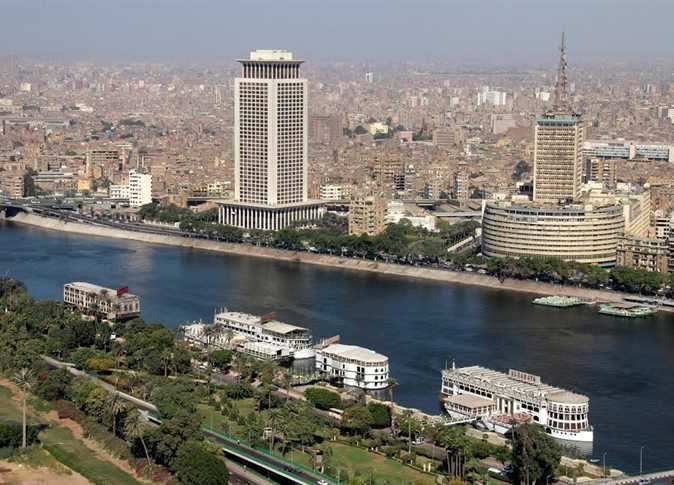Amira Mikhail, half Egyptian and half American, has lived in Egypt for the majority of her life but, as she puts it, her “looks took on the fair skin and colored eyes of [her] mother.” As a result, even when she holds out her Egyptian ID, people still ask her if she’s Egyptian.
“My whole life this has been an issue and the only difference [after the 25 January revolution] is that it is just a bit more extreme. … There has been a general trend of negative attitudes towards foreigners which I myself feel on occasion,” she said.
As a tactic to stifle the 18-day uprising last winter, Hosni Mubarak's regime used state media to claim that protesters were being manipulated by foreign elements intent on destroying Egypt. This led to an immediate rise in xenophobic attacks and remarks, and a burgeoning mistrust of all those who seem different.
Vestiges of this mistrust have endured, and more often than not, it is Egyptians who find themselves at the receiving end – it is not the sole domain of the visiting or expatriate foreigner.
Many Egyptians are regarded with suspicion for somehow seeming foreign. Distrust of foreigners and Egyptians who might have “foreign allegiances” is even being manifested in the law. The Interim Constitution introduced by the military and ratified by public referendum in March stipulates that a dual national Egyptian cannot be president.
The current unease about the presence of foreigners around protests in Egypt stems from the few days between 28 January and 2 February when the state media – under the guidance of Anas al-Fiqqi, then information minister – and some private media channels rushed out a flurry of false reports about foreigners instigating the uprising, many disguised as journalists.
A mishmash of infiltrators from the US, Israel, Hamas, Iran and Hizbullah, were all apparently working in tandem to destroy Egypt.
The repercussions were instantaneous, as Amira Ahmed, business editor at Daily News Egypt, can attest. On 3 February a number of reporters and others were attacked by a mob near the newspaper’s office for being “foreigners and spies,” before being handed over to a military officer at an army checkpoint.
Though the majority of the group was Egyptian, that did not temper the hostility of the baying mob. Ahmed recalled how shouting that they were in fact Egyptians was met with the response: “You’re not Egyptian, you’re not Egyptian like us, you’re different.”
“The trigger words of the day: Al Jazeera, journalist, foreigner. It’s all you had to scream out to inspire an angry mob to charge. Journalists covering Tahrir Square were especially vulnerable. Xenophobic attacks took place almost everywhere, most randomly,” she said.
The media’s incitement against foreigners has continued, with concerns regarding spies and foreign funding of local NGOs and other bodies.
Mikhail says she felt pressure because of this when the ongoing sit-in in Cairo’s Tahrir Square began on 8 July.
She said: “Right before the sit-in began, an official statement [from the military] was released announcing that there would be foreign infiltration of the event. … I have been hearing a lot of comments. I have been called a spy, an agent, I have had people say ‘fuck you’ as I passed, I have had many people look at me in disgust and say that I was a “foreigner.” … And when I respond as any Egyptian (or foreigner) should, they get angry, offended and start yelling or shouting.”
Recent events also helped feed the notion that foreigners are spies and that anyone who happens to look markedly or even slightly different should not be trusted. In June, Egyptian security forces announced they captured an Israeli spy by the name of Ilan Grapel, who remains in detention pending investigations.
If Grapel was a spy, he was a particularly bad one. Unlikely accounts of his activities in Egypt were reported on national newspapers’ front pages. The evidence against Grapel, an American with Israeli citizenship who served in the Israeli army during the 2006 war in Lebanon, seemed to have been lifted directly from his Facebook page.
More recently, four US journalists were arrested in Suez. Residents of the city told Al-Masry Al-Youm that they were four Jews they had caught and handed to the army. Additionally, an Italian tourist was arrested last week on 6th of October Bridge because he appeared to be filming a military installation.
The spy issue seems to be a big reason why this phenomenon is becoming more and more prevalent. OnTV presenter Yousri Fouda recently commented that Egypt’s “stomach was open” at the moment and that could allow infiltrators from abroad. Many political forces and TV commentators are pushing the same line, all agreeing that Egypt’s national security is a red line.
Not everyone is paranoid, though. “As long as the intelligence services are doing their job, no foreigner here can hurt me,” said Tarek Mohamed, a teacher from the Upper Egyptian city of Qena taking part in the Tahrir sit-in.
Mohamed’s colleague, Mohamed Mahmoud, took an even more conciliatory approach to the issue: “We are used to foreigners in Egypt and it is not a problem.”




